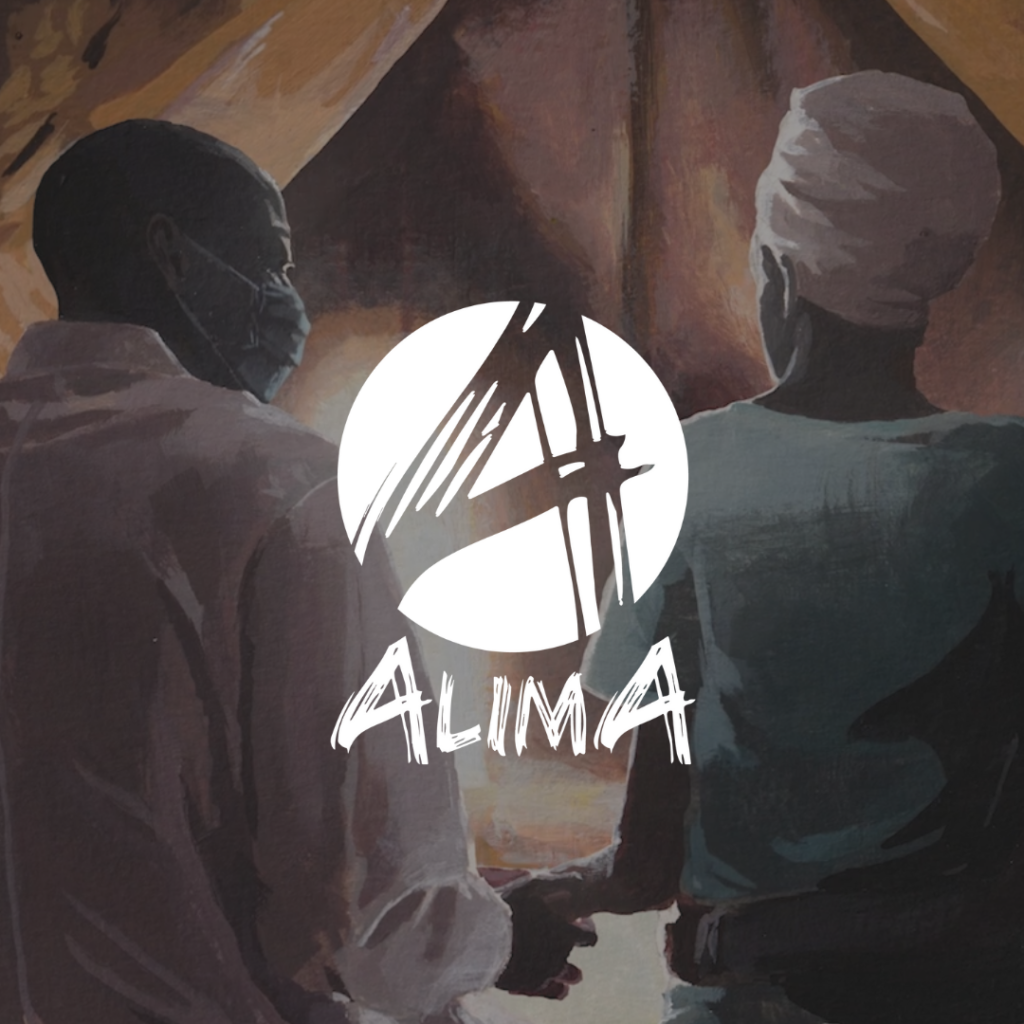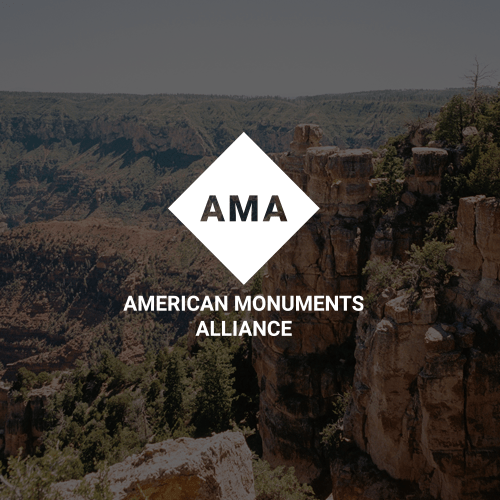Challenge
A year after the start of the coronavirus pandemic, the world saw a glimmer of hope in the form of vaccines. Unfortunately, it wasn’t long before there was a noticeable gap in vaccine access. Rich countries purchased more than needed, and their citizens swiftly made appointments to get immunized, while low-income countries struggled to secure enough doses to inoculate even half of their populations.
The World Health Organization Foundation (WHO Foundation) developed Go Give One, a public health campaign to combat disparities in COVID-19 vaccine equity. The premise of the global health initiative was simple: donate $5 to give a vaccine to someone in a lower-income country.
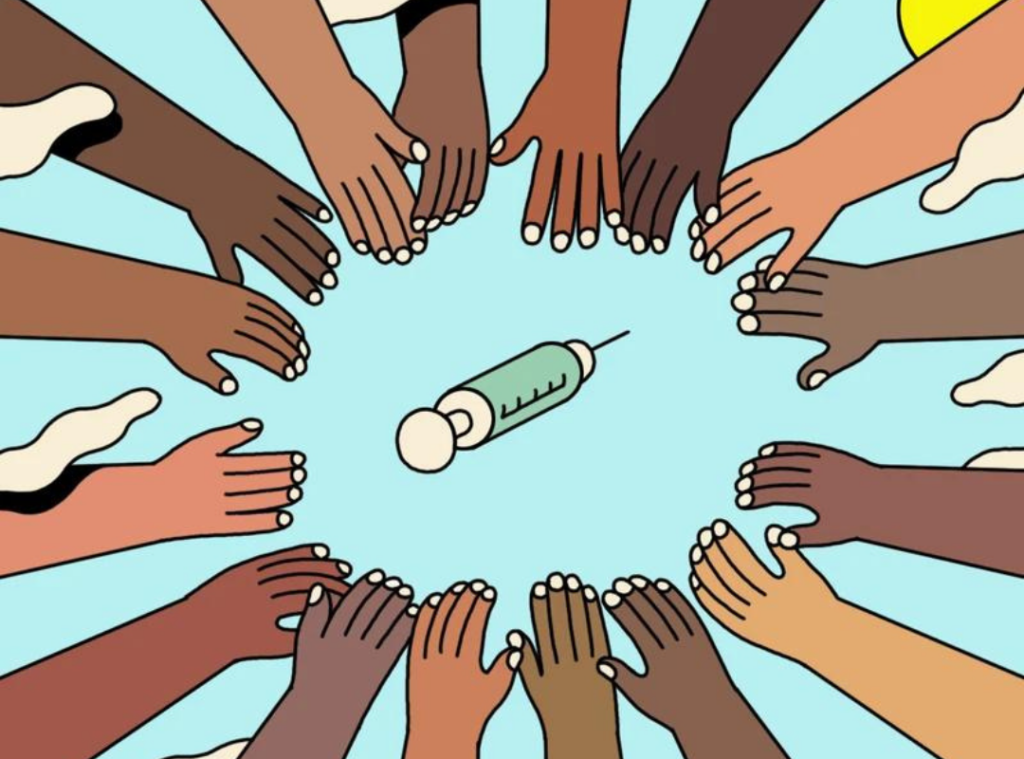
For the WHO Foundation, developing a global health campaign in the midst of a pandemic was challenging enough. Compounding that were additional hurdles: the politicization of COVID-19, reaching enough people to make a difference, and the need for the Go Give One campaign to account for cultural nuances around the world. The organization needed a communications partner with global health campaign experience to help launch Go Give One as a successful global health initiative.
Solution
At the outset, the WHO Foundation knew they wanted Go Give One to be a people-powered movement that would persuade the public to act on a shared sense of urgency to end the pandemic. It was imperative that messaging for the global health campaign be broad enough to resonate on a massive scale but poignant to compel people to take action toward addressing vaccine inequity.
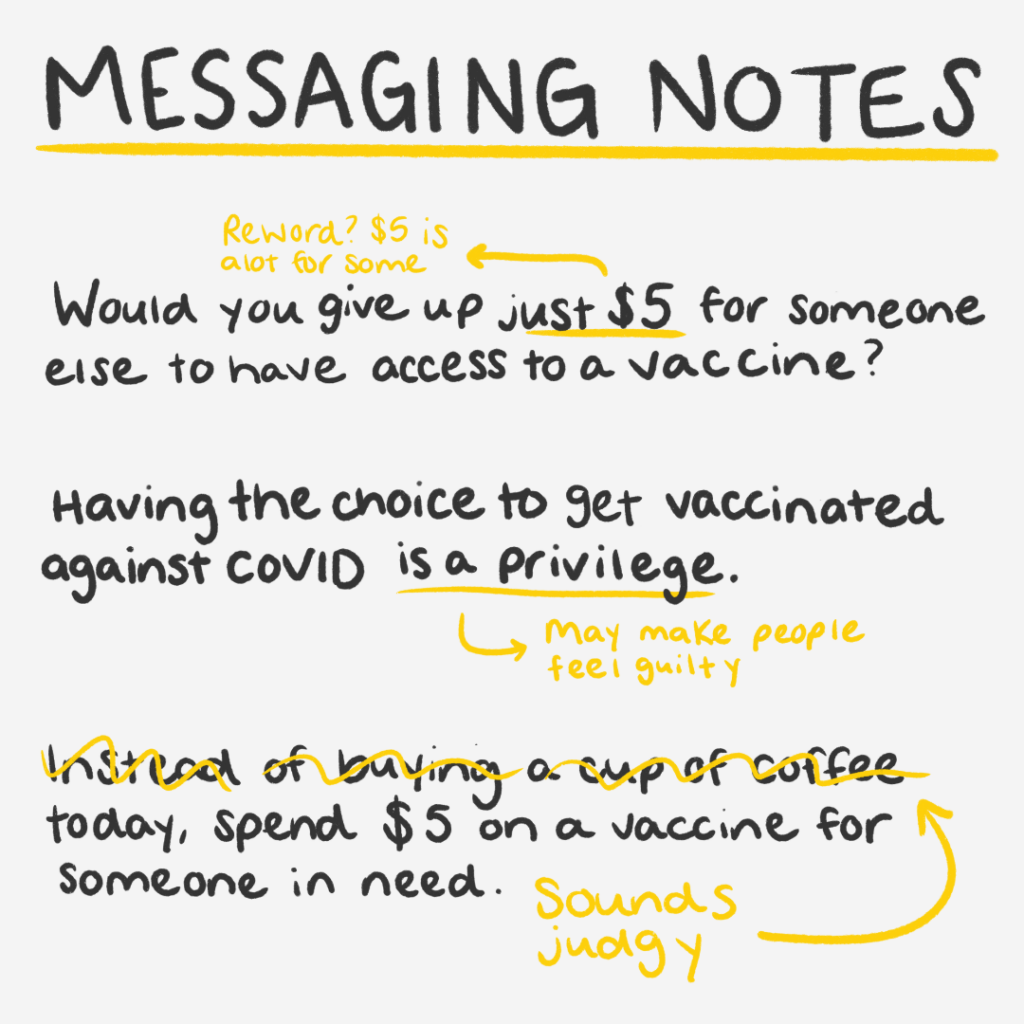
After rounds of messaging sessions, we identified what we needed to avoid and honed in on the campaign’s tone of voice. We didn’t want to invoke guilt, shame people for their personal habits, or even affirm individual vaccination decisions.
We focused on uplifting, universally accepted values: hope, access, fairness, interconnection, empowerment, and choice. From there, we crafted the public health campaign’s identity and key messages:
• The coronavirus pandemic has no borders, and neither should availability to the vaccine.
• The only way we will be free from COVID-19 is to make sure everyone, everywhere, is vaccinated against it.
• For $5, we all can play a part in ending the pandemic by fighting COVID-19 vaccine inequity.
Similarly, Go Give One campaign visuals needed to be straightforward for universal resonance. The logo was designed as a strip of ticker tape with “Go Give One” written in multiple languages. Assets featured bold images, animated videos, and easy-to-read messages.

To prepare the Go Give One campaign for a momentous kick-off, Entertain Impact facilitated a $1 million donation match partnership between the WHO Foundation and the ELMA Vaccines & Immunization Foundation. We knew setting up the donation match partnership would help amplify Go Give One, further priming the global fundraising campaign for success in the fight for COVID-19 vaccine equity.
In partnership with the ELMA Vaccines & Immunization Foundation, Global Citizen, and MasterCard, the WHO Foundation’s Go Give One campaign was announced at Global Citizen LIVE, a 24-hour, worldwide event that brings artists, celebrities, and world leaders together for social change. Celebrities were engaged to promote the global health initiative at the event. During his performance, musician Elton John urged concert-goers to donate to Go Give One, and the Duke and Duchess of Sussex took to the stage to speak on global vaccine equity.
The debut signaled a strong start to the Go Give One campaign as it garnered attention from celebrities, media outlets, corporate partners, and the general public.
Impact
Following the announcement of Go Give One at Global Citizen LIVE, the WHO Foundation’s global fundraising campaign gained widespread attention. Thanks to the $1 million donation match partnership with the ELMA Vaccines & Immunization Foundation, the campaign immediately gained public confidence.
Alexa MacClean, the Campaign Lead for the WHO Foundation’s vaccine equity campaign, shared how the partnership benefited the global health initiative.
“The matching element of our partnership gave people an incentive to donate now because their impact would be doubled. It helped to create a feeling that it was important to
act immediately, which dramatically boosted the donation numbers.”
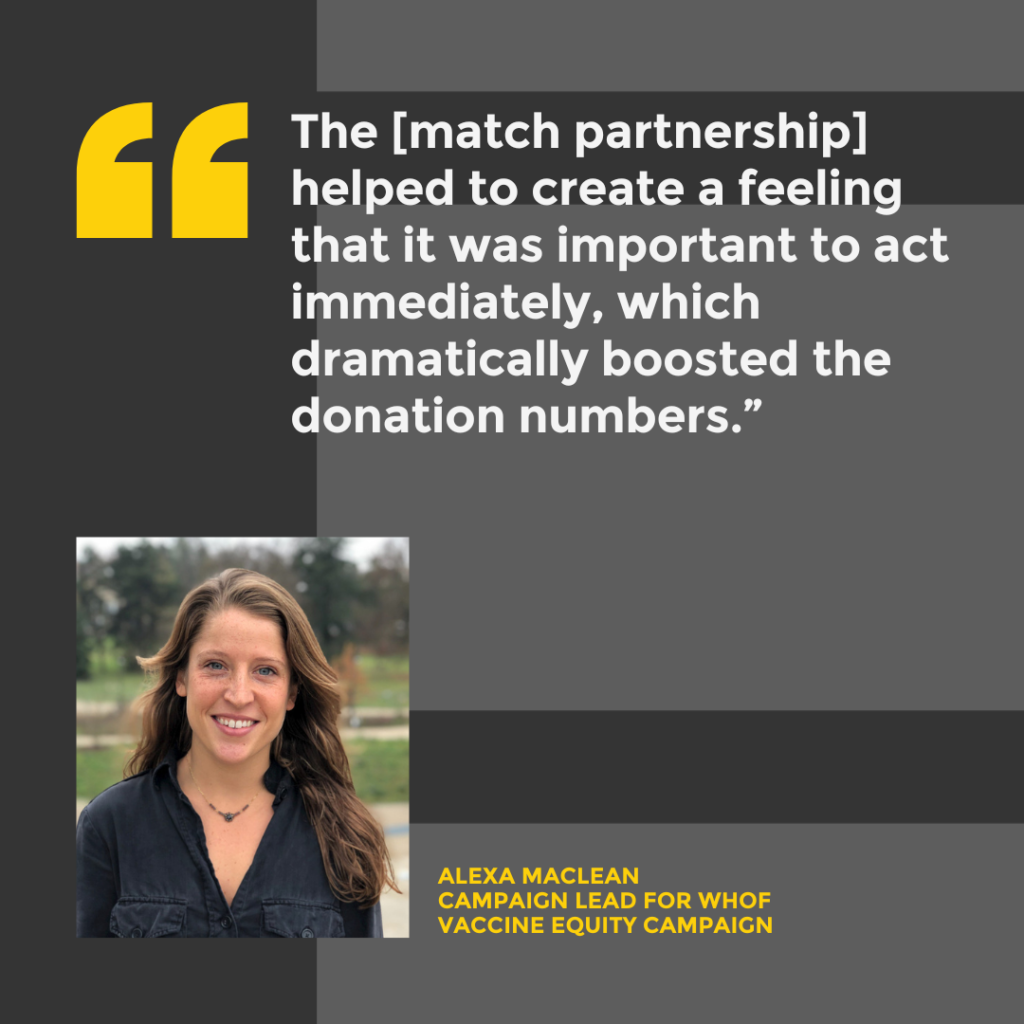
After just a few months, the WHO Foundation raised $1.7 million from donors worldwide, and the donation match partnership helped purchase more than 536,000 COVID-19 vaccines for people in lower-income countries.



